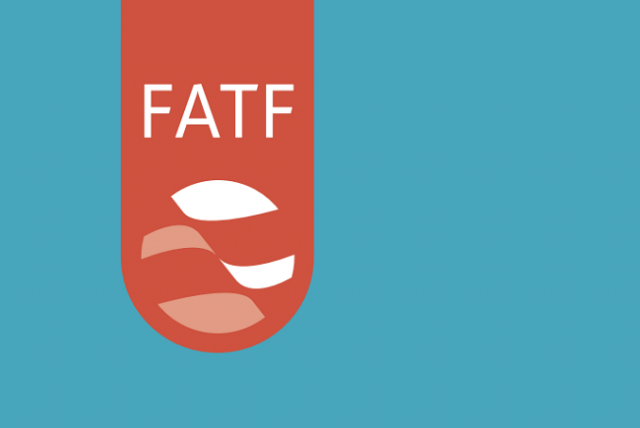Pakistan enters 2nd round of talks with FATF
Talks to continue till Sep 13; its outcomes to determine country’s stay or removal in grey list

Delegation led by economic affairs minister to leave for Bangkok on Friday
The Pakistani delegation is led by Minister for Economic Affairs Hammad Azhar and includes officials from the Federal Investigation Agency, State Bank of Pakistan, the Federal Board of Revenue, the Securities and Exchange Commission of Pakistan, the Anti-Narcotics Force (ANF) and other agencies.
The sources said the meeting will continue till September 13 and its outcome will determine Pakistan’s removal or stay in the FATF’s grey list. The FATF’s Asia Pacific Group (APG) will also ponder over inclusion of Pakistan’s name in its extension list. The APG has also called upon Pakistan to respond on its 125 questions based on which the country’s name may be removed from the extension list.
In addition to review of the responses, officials from Pakistan and the FATF team will also engage in a face-to-face question and answer session.
The APG will represent Pakistan’s stance at the FATF talks. During the talks, Pakistan will have to respond to 10 key questions pertaining to money laundering and terrorism financing.
Pakistan would also brief the FATF team regarding its crackdown against the elements involved in terrorism financing as well as progress relating to investigation, prosecution and conviction of the facilitators of terrorism in the country.
A decision regarding stay or removal of Pakistan from the FATF’s grey list will be subject to outcomes of the meeting and while the FATF is scheduled to take the final decision in November 2019, it will become clearer whether or not body is going to decide in favour of Pakistan.
Sources said Pakistani delegation has apprised the FATF officials that Pakistan has been working on a new National Risk Assessment Programme through support from United Nations Office on Drug and Crimes (UNODC).
Based on the programme, Pakistan is conducting assessment in three areas including risks associated with terror financing and areas or sectors in which such financing is likely to exist.
The sectors or areas with high vulnerability for terror financing are also identified while repercussions of slackness or negligence in addressing such vulnerabilities are also being assessed under the programme.
The FATF officials have been informed about the actions taken against elements involved in terrorism and terrorism financing, sources revealed, adding that the interior minister’s statement regarding crackdown against banned organisations was in light of the action plan as he had also clarified that action will continue against all outfits found to be involved or linked to terrorism in the country.
According to sources, Pakistan is chalking out a policy for monitoring and inspection of all designated non-financial businesses and professions (DNFBPs) including lawyers, chartered accountants, real estate dealers and traders of precious metals and stones.
According to the FATF’s recommendations 22, 23 and 28, the income and activities of all such entities will be examined under the action plan. Monitoring and regulation of a few of such sections have already been started.



















COMMENTS
Comments are moderated and generally will be posted if they are on-topic and not abusive.
For more information, please see our Comments FAQ